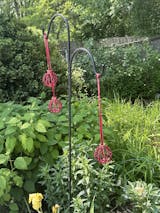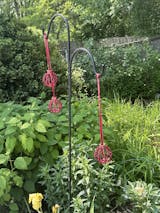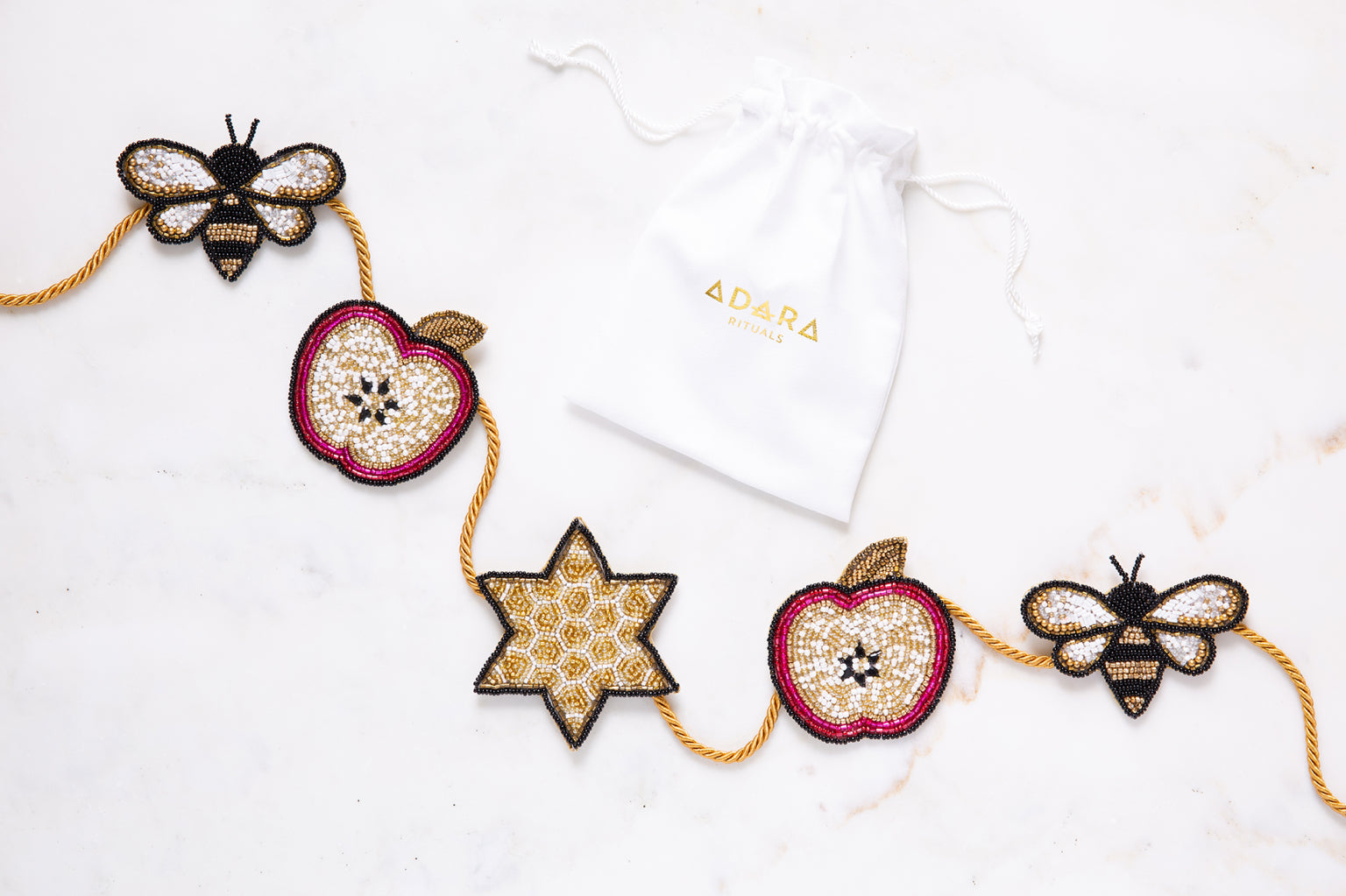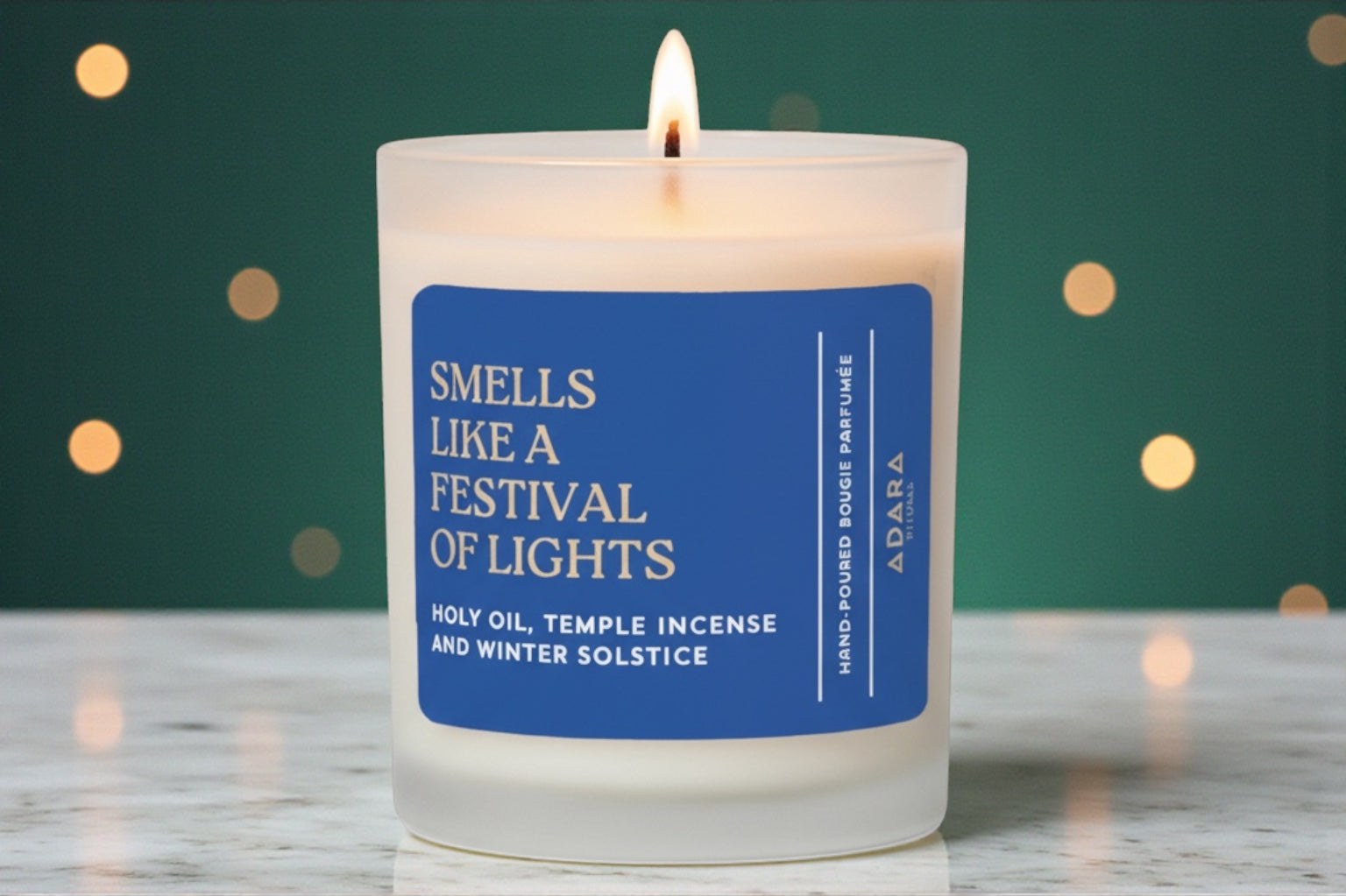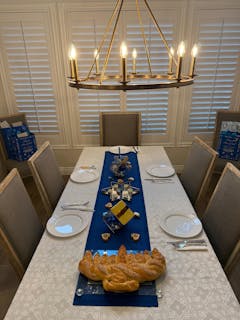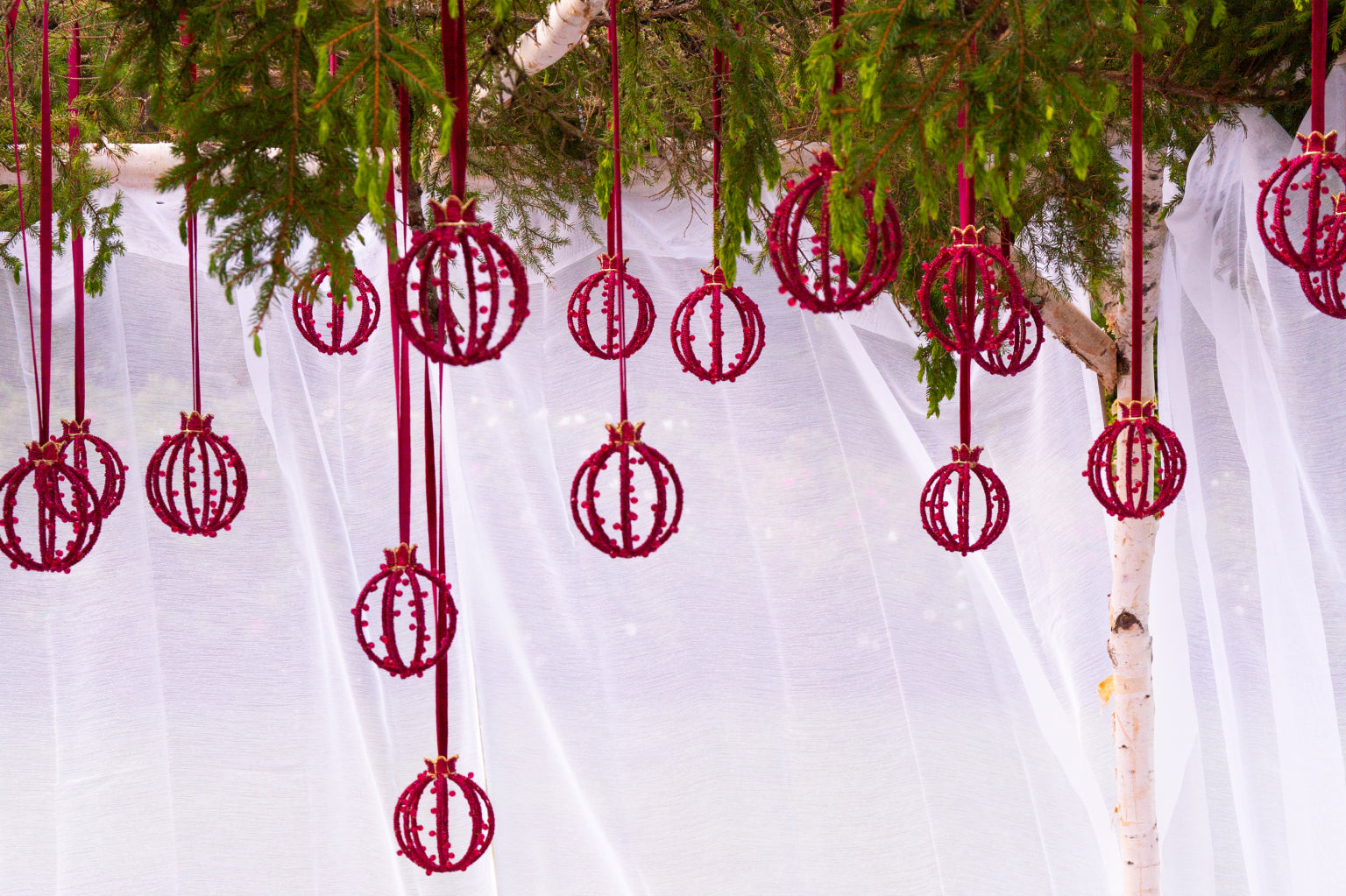
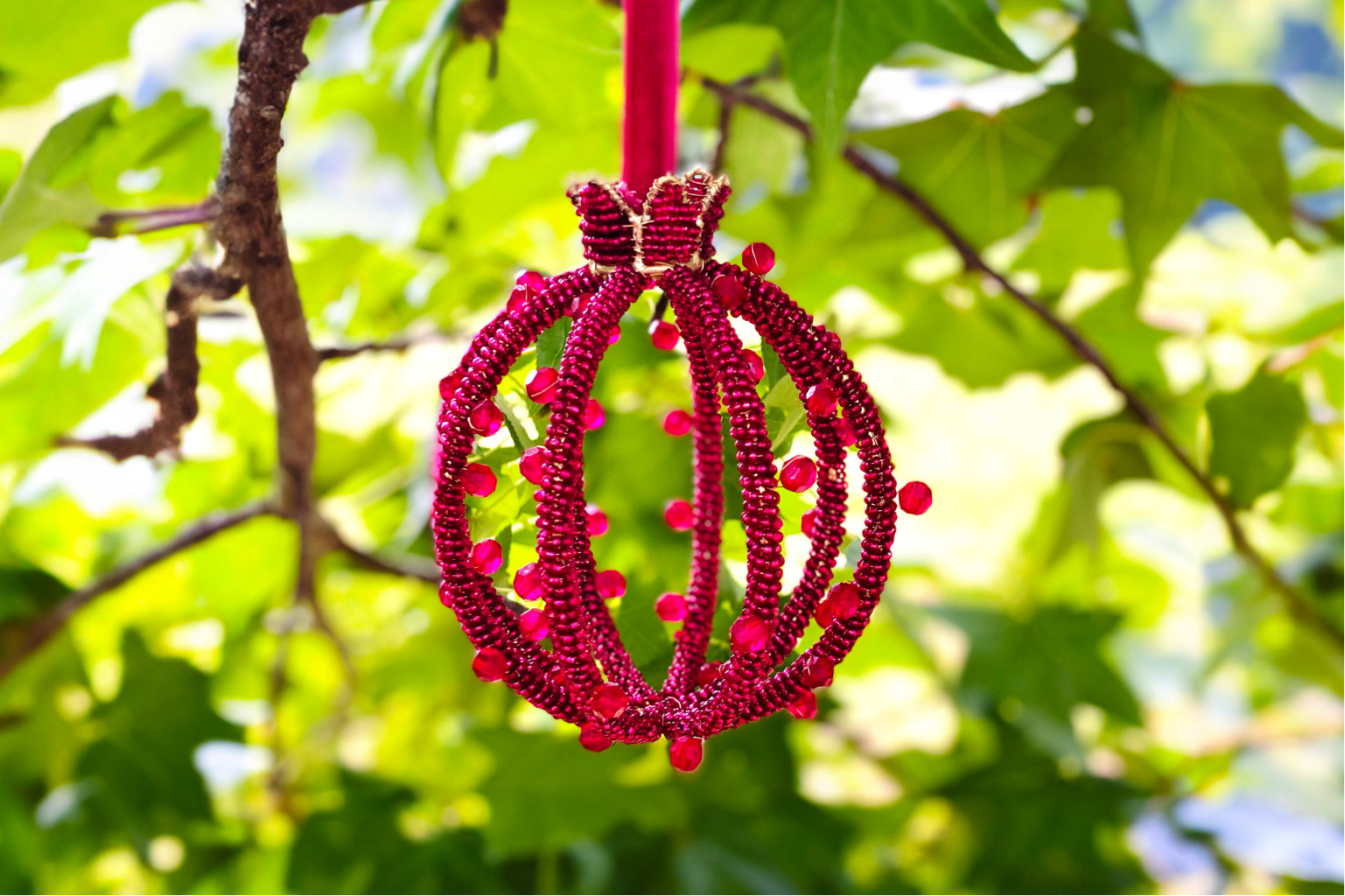
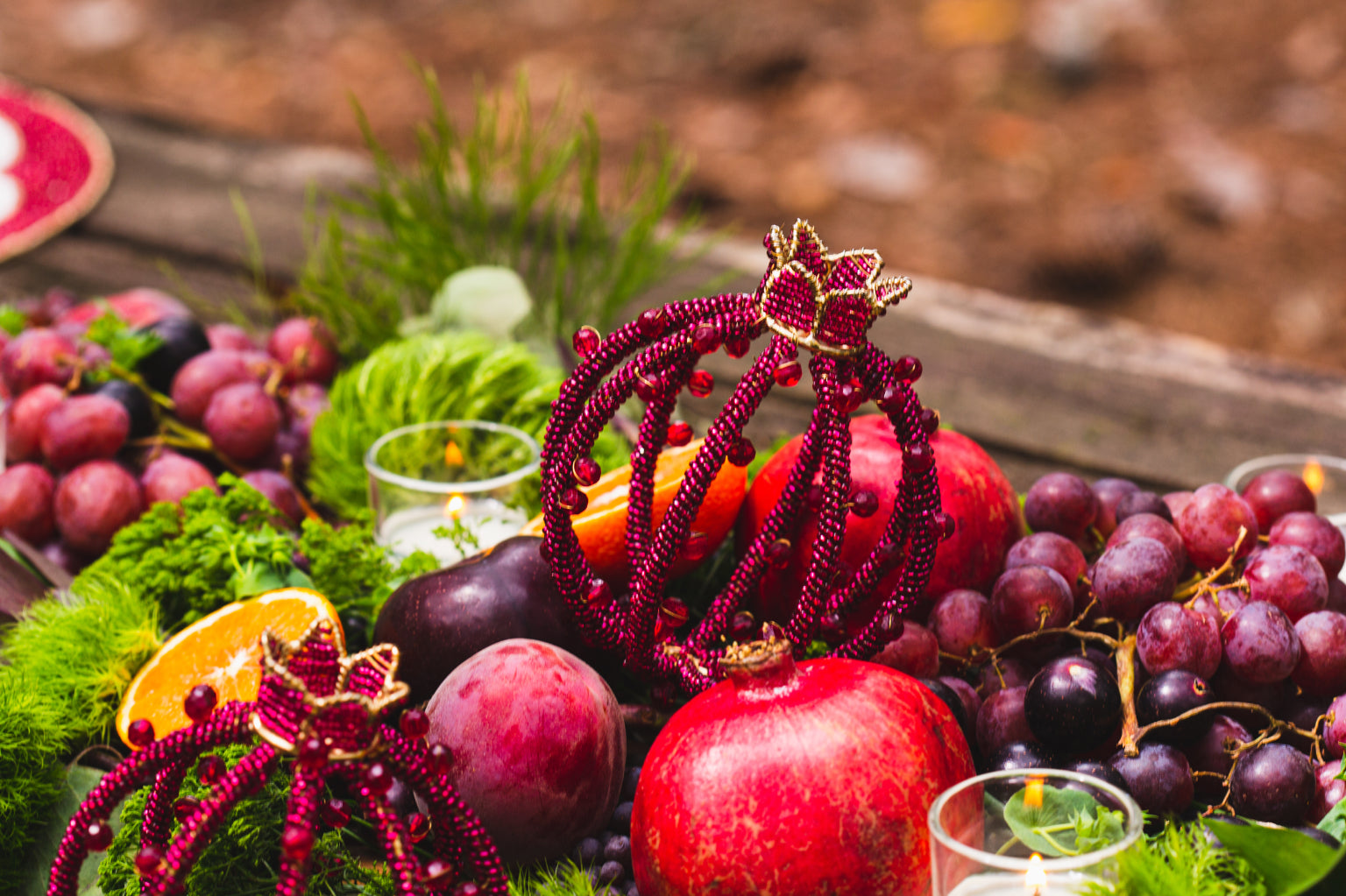
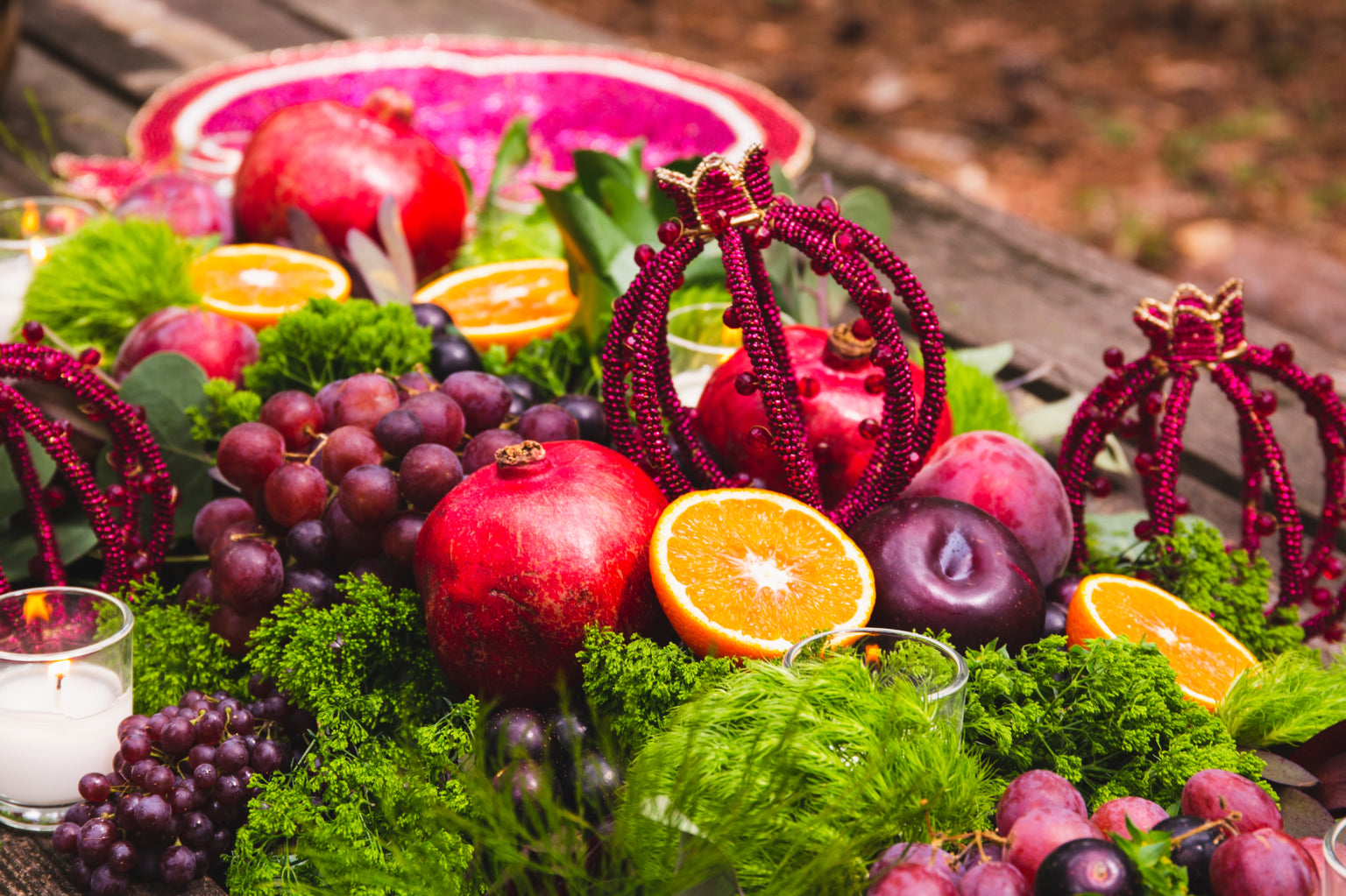
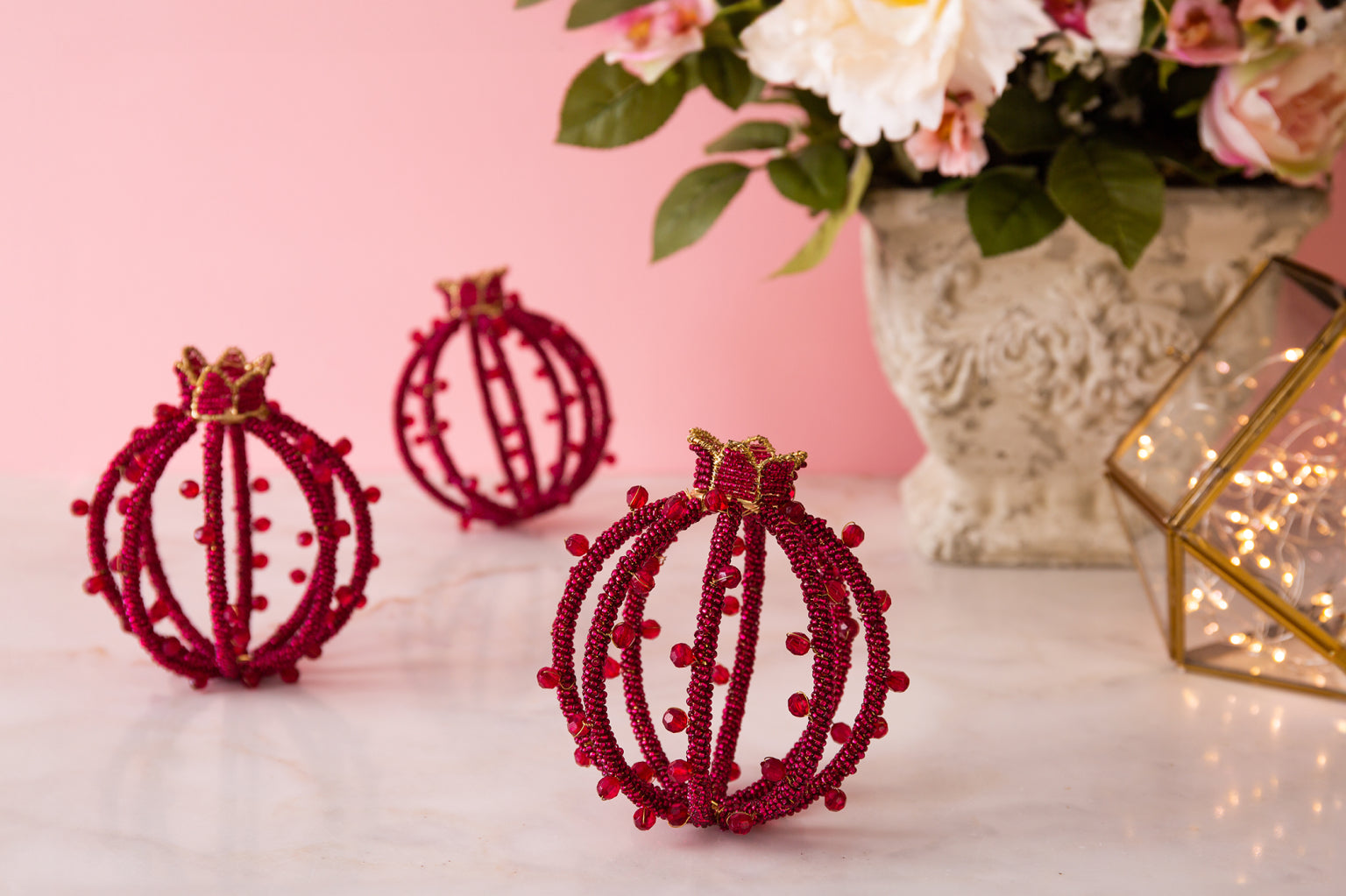
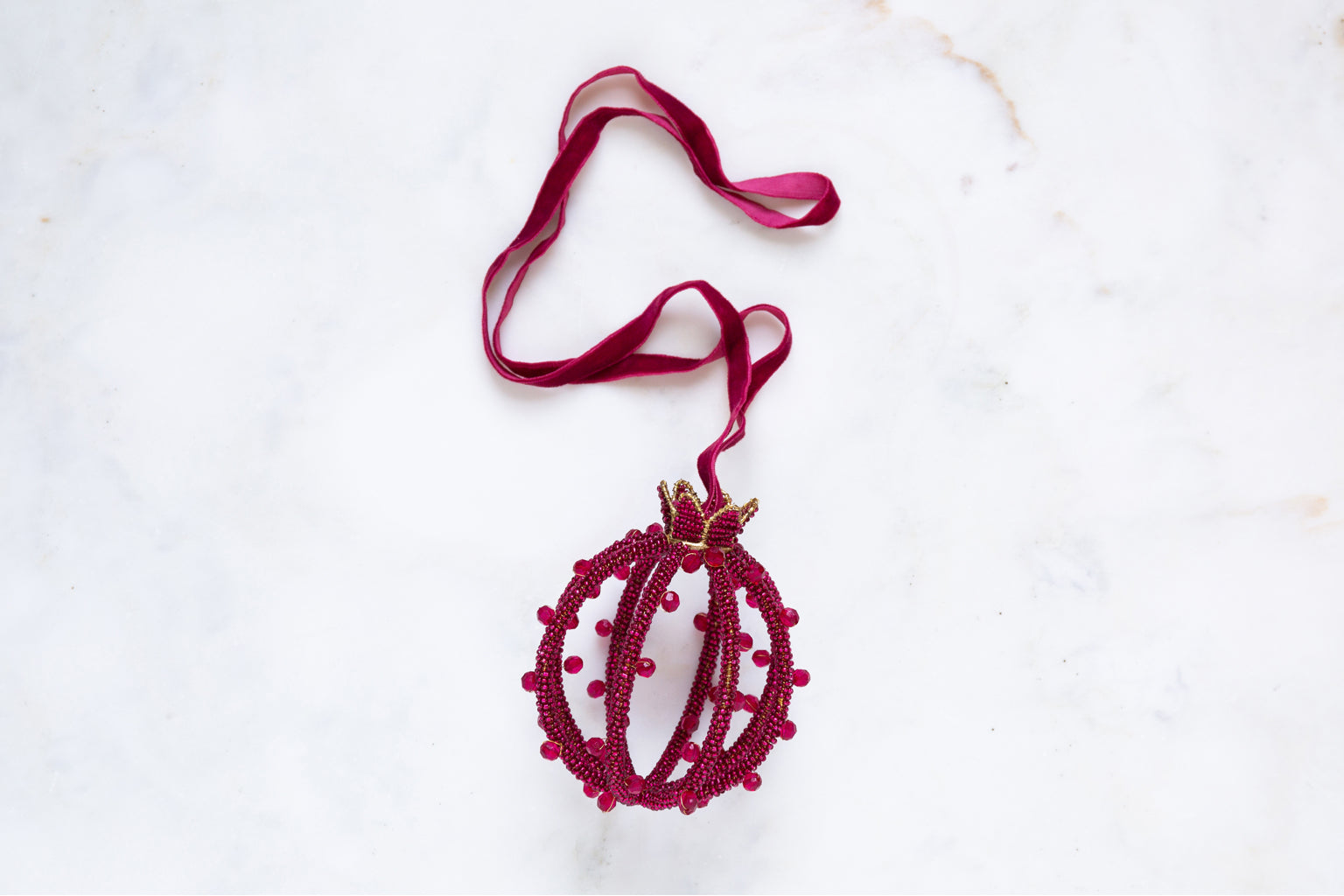
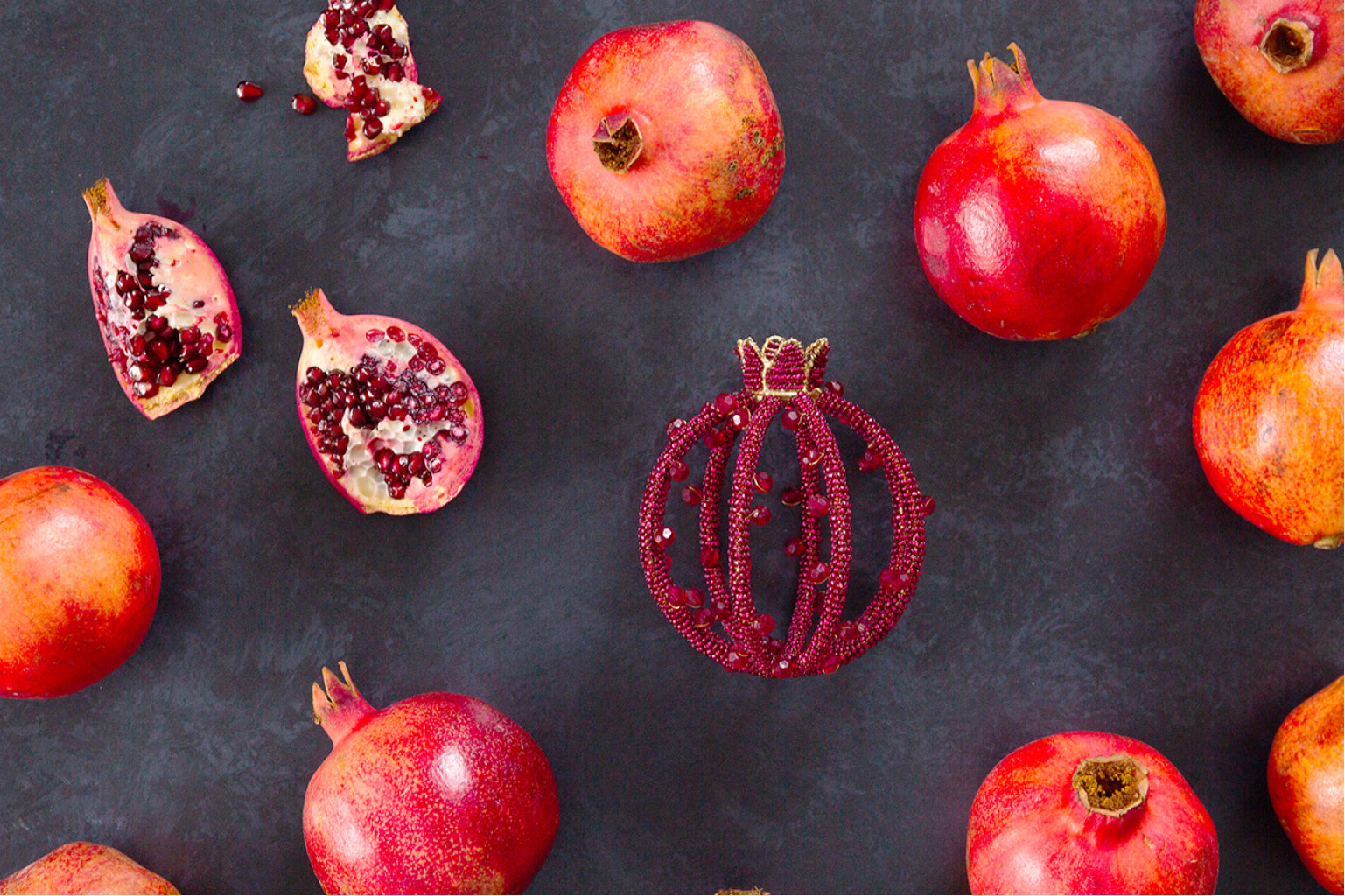
Delia Pomegranate Bauble
Elevate your Rosh Hashanah and Sukkot celebrations with our Pomegranate Bauble, a stunning symbol of divine femininity and ancient wisdom. Made from glass and acrylic beads hand-wrapped around a custom-crafted metal frame, this bauble is more than just decor—it’s a meaningful statement piece. Whether you hang it as a Sukkah decoration with its elegant velvet ribbon or use it as a striking tabletop accent, this bauble captures the essence of homeland, spirituality, and tradition. It’s perfect for those who want to infuse their holiday with beauty and cultural richness.
Product Highlights:
Pomegranate Symbolism & Ancient Wisdom
Choose options








